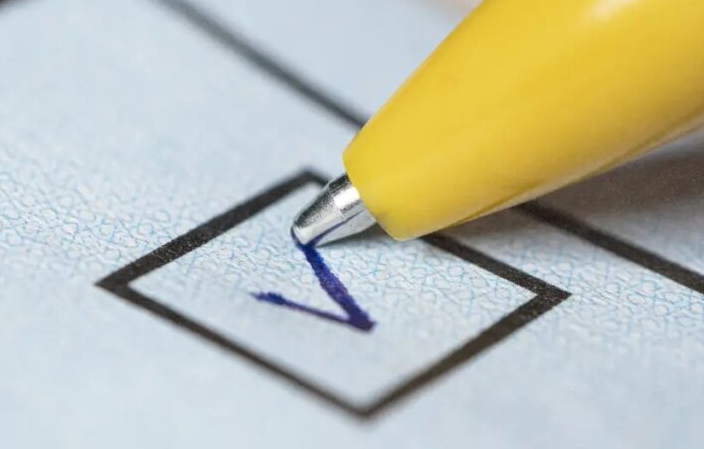In a stunning twist, signature collectors aiming to scrap Massachusetts’ thriving adult-use cannabis market face accusations of tricking voters into signing petitions. Reports of misleading tactics have sparked outrage, raising questions about the integrity of the 2026 ballot initiative. As complaints pile up, could this derail efforts to reverse legalization?
Voters across Massachusetts are reporting encounters with signature gatherers who allegedly use deceptive methods to collect support for repealing the state’s cannabis laws. The Massachusetts Cannabis Business Association (MCBA) has leveled serious charges against these workers, claiming they commit organized voter fraud to advance the ballot proposal known as “An Act to Restore a Sensible Marijuana Policy.”
Personal stories from places like Waltham highlight how some gatherers present petitions as efforts for affordable housing or same-day voter registration, only for signers to later discover the true aim: ending recreational marijuana sales. This initiative, if successful, would shut down the $1.6 billion adult-use cannabis industry that voters approved in 2016.
The MCBA bases its claims on accounts shared on social media platforms like Reddit and Facebook, plus insights from an independent journalist. David O’Brien, the group’s president and CEO, stated in a recent press release that out-of-state contractors are behind these shady practices. He called it a clear pattern of deception designed to trick people into backing the repeal.
One voter described being approached outside a grocery store, where the collector mentioned improving community services. Only after signing did they learn it targeted cannabis legalization. Such stories have fueled a growing backlash, with many feeling their trust in the democratic process has been violated.
Campaign Backers and Their Goals
The drive is spearheaded by the Coalition for a Healthy Massachusetts, a group pushing to roll back key parts of the state’s marijuana legalization. They seek to place the initiative on the 2026 ballot, which would ban adult-use sales, cultivation, and manufacturing while keeping medical cannabis intact.
Supporters argue that legalization has led to increased youth access and public health concerns. They point to data from the Massachusetts Department of Public Health, which in a 2023 report noted a slight uptick in cannabis use among high school students since 2016. The coalition aims to collect about 75,000 valid signatures by early December to qualify.
However, the campaign insists it’s on track, with a spokesperson recently telling reporters they’ve gathered a strong number already. This comes amid broader efforts in the state to tighten regulations, but the repeal push stands out for its bold scope.
Critics, including cannabis advocates, warn that undoing legalization could drive the market underground, hurting jobs and tax revenue. Massachusetts has generated over $500 million in cannabis taxes since 2018, funding schools and public programs, according to state revenue figures from the Cannabis Control Commission.

Complaints Reach State Officials
The controversy has reached the desk of Massachusetts Attorney General Andrea Joy Campbell. Her office confirmed receiving multiple complaints about the petition tactics, with voters alleging signature collectors misrepresent the initiative’s purpose.
One key issue involves the use of fake cover sheets that hide the anti-cannabis agenda, a tactic some say borders on fraud. Local officials in towns like Waltham have fielded similar reports, urging residents to verify petitions before signing.
In response, the attorney general’s team is reviewing these claims, though no formal investigation has been announced yet. This isn’t the first time ballot initiatives in Massachusetts have faced scrutiny; a 2024 effort to repeal a gun law also drew signature challenges, but it moved forward after verification.
Advocates like the MCBA are calling for accountability, suggesting that invalid signatures could disqualify the measure. They recommend voters report suspicious activity to local town halls or the state elections division.
To spot potential deception, experts advise:
- Always read the full petition summary before signing.
- Ask for the official ballot question number.
- Verify the group’s name matches state records.
These steps could help protect the process as the deadline approaches.
Impact on Voters and the Cannabis Industry
The allegations come at a pivotal time for Massachusetts’ cannabis sector, which employs thousands and contributes to economic growth. If the initiative makes the ballot and passes, recreational sales would end by January 1, 2028, forcing businesses to pivot or close.
Industry leaders fear this could set a precedent for other states. A 2024 study by the economic firm New Frontier Data estimated that repealing legalization might cost Massachusetts up to 20,000 jobs and $200 million in annual revenue. The research, based on sales data from 2023, underscores the program’s role in supporting local economies.
For everyday voters, the deceit raises broader concerns about election integrity. Many who support cannabis reform feel their voices are being undermined by underhanded methods.
One business owner in Boston shared how the uncertainty affects planning: “We’ve built a legitimate industry here. Tricks like this make it hard to trust the system.”
Broader Context in State Politics
Massachusetts has a history of voter-driven changes, from legalizing cannabis in 2016 to recent audits of the legislature. But this repeal effort taps into ongoing debates about drug policy, with prohibitionists citing federal classifications and health risks.
Nationally, cannabis reform is expanding, yet pushes like this show resistance persists. In nearby states, similar initiatives have failed, but Massachusetts’ case could influence 2026 elections elsewhere.
A table of key cannabis milestones in the state illustrates the journey:
| Year | Event | Impact |
|---|---|---|
| 2016 | Voters approve legalization | Recreational market opens |
| 2018 | First adult-use sales begin | Revenue starts flowing |
| 2023 | Sales top $1.6 billion | Jobs and taxes surge |
| 2026 | Potential repeal vote | Industry at risk |
This backdrop highlights why the current fraud claims matter so much.
As allegations of voter deception swirl around the push to repeal Massachusetts’ cannabis legalization, the fight exposes deep divides over drug policy and fair elections. With the 2026 ballot looming, these tactics could backfire, galvanizing supporters to defend the law.
Maria Garcia is an award-winning author who excels in creating engaging cannabis-centric articles that captivate audiences. Her versatile writing style allows her to cover a wide range of topics within the cannabis space, from advocacy and social justice to product reviews and lifestyle features. Maria’s dedication to promoting education and awareness about cannabis shines through in her thoughtfully curated content that resonates with both seasoned enthusiasts and newcomers alike.








